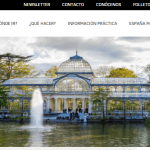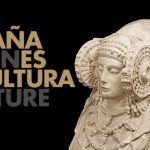Bogotá is the third city in Latin America to be accredited as a Smart Destination, a distinction awarded by the State Society for the Management of Innovation and Tourism Technologies (SEGITTUR), which falls under the Ministry of Industry, Trade and Tourism.
The mark was presented to the Mayor of Bogotá, Claudia López, by Enrique Martínez Marín, President of SEGITTUR this afternoon, at an event attended by the Spanish Ambassador to Colombia, Joaquín de Arístegui Laborde, and top representatives from the Colombian capital’s tourism sector.
The smart destination model, developed by Spain and endorsed by international organisations such as the World Tourism Organization, the Inter‑American Development Bank, the OECD, the European Commission and the WTTC, is based on 5 key principles (governance, innovation, technology, sustainability and accessibility) and assesses more than 200 criteria.
Innovation, at the heart of Bogotá’s smart destination model
The president of SEGITTUR has praised Bogotá’s commitment to becoming a smart destination, a step that presents major challenges, as well as offering great opportunities for turning the Colombian capital into a destination that is not only committed to innovation and technology, but to including sustainability and accessibility in its roadmap, as a response to new tourist needs in the post-Covid context.
For Karol Fajardo, Director of the District Tourism Institute of Bogotá (IDT), “tourism should always strive for an improved quality of life for residents and for their general well-being, providing visitors with the best possible experiences at destinations. For this reason, making Bogotá a smart destination is an opportunity not only to achieve the goal the IDT has been pursuing, but also to promote the city and leave it with a management model that will allow even greater public-private collaboration in favour of a more sustainable, inclusive, responsible and productive tourism, which with the incorporation of initiatives in governance, technology and innovation will allow transformation, growth, and the positioning of Bogotá as a destination of excellence, and a benchmark in Latin America”.
Of the five key areas analysed, innovation is where Bogotá obtained the best results, particularly those linked to innovation ecosystems; this is followed by governance, where outstanding efficiency in management was recognised, as well as technology and accessibility; the area where a major effort is required is sustainability, to improve environmental conservation and recovery.
The report submitted to the Mayor’s Office highlights the fact that Bogotá has developed various initiatives such as the Bogotá Smart Territory policy, the Tourism Observatory, Spatial Data Infrastructure Bogotá, the District Tourism Quality System, and the District Tourism Fund as well as a commitment to the circular economy, all elements that fundamental for becoming a smart tourist destination.
Bogotá is strongly committed to innovation as a way of leveraging opportunities and tackling new challenges that arise within the context of tourism, while at the same time stimulating the destination’s innovation ecosystem, fostering open innovation and facilitating innovation processes.
In terms of governance, the report notes that the city has structures for public-private collaboration that are key to the smart destination model, as well as coordination structures, planning tools and channels for communication with visitors and residents.
With regard to technology, Bogotá already has smart signage, tourist intelligence systems, free Wi-Fi and a smart strategy plan, in addition to tourism apps and various online channels for communication with tourists.
In terms of sustainability, the Colombian capital needs to improve in the area of environmental conservation, improvement and recovery.
In addition to the smart destination assessment report, the Mayor’s Office of Bogotá has also been presented with an action plan that proposes a number of actions to help the city to improve, and to become a 100% smart destination.
The initiatives proposed include the development of a smart office for tourism promotion, the drafting of a sustainable mobility plan, and the regulation of heritage and landscape protection, plus a drive to measure the carbon footprint generated by tourism, and the implementation of technological solutions to facilitate accessibility and mobility for tourists visiting the destination.





